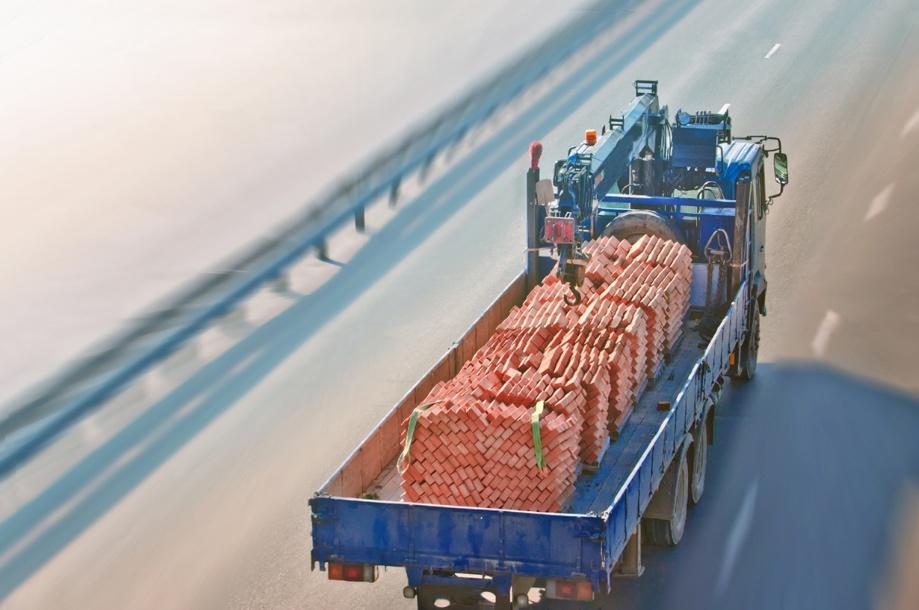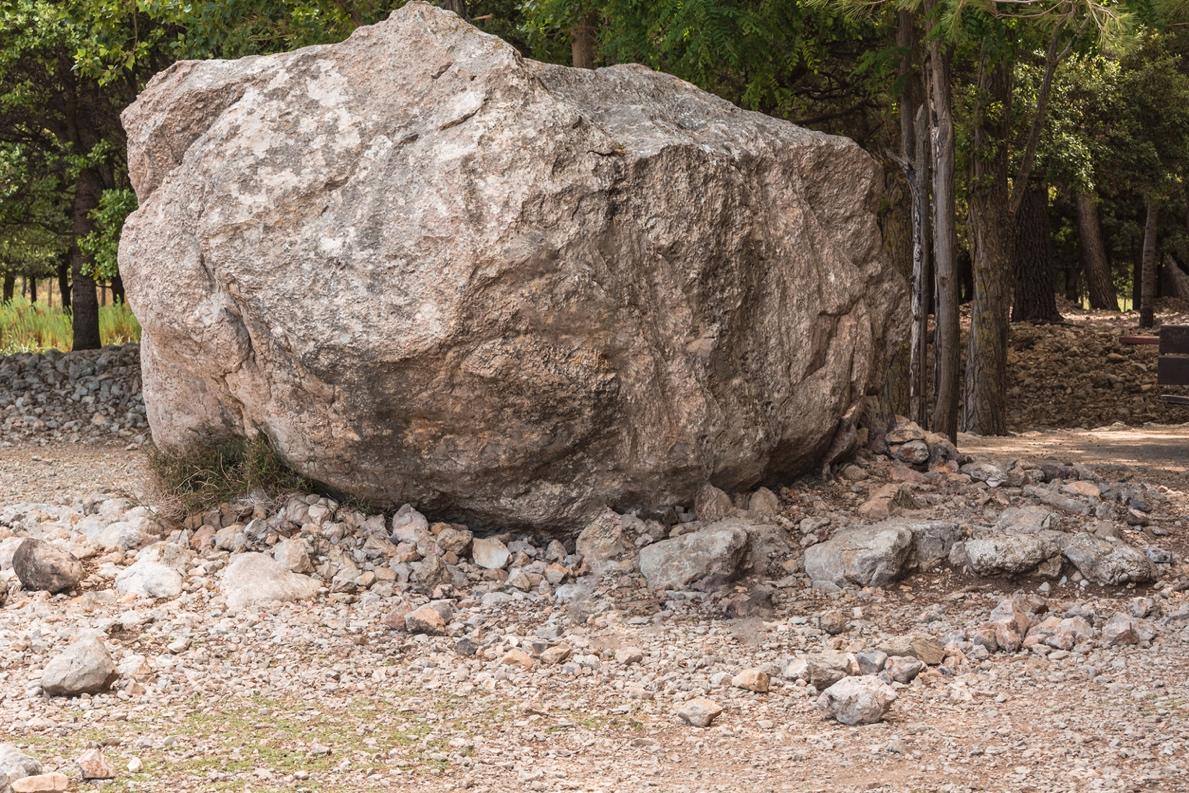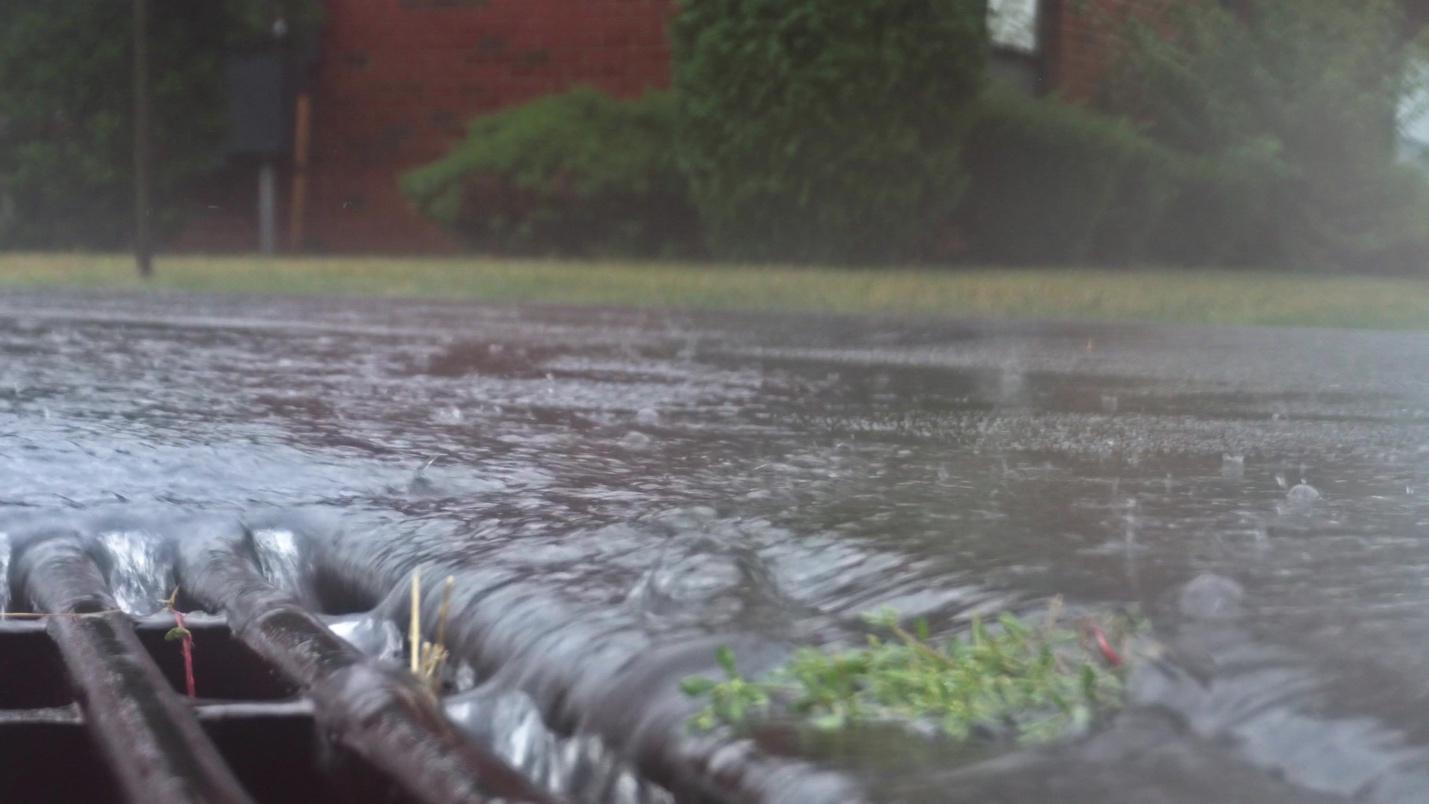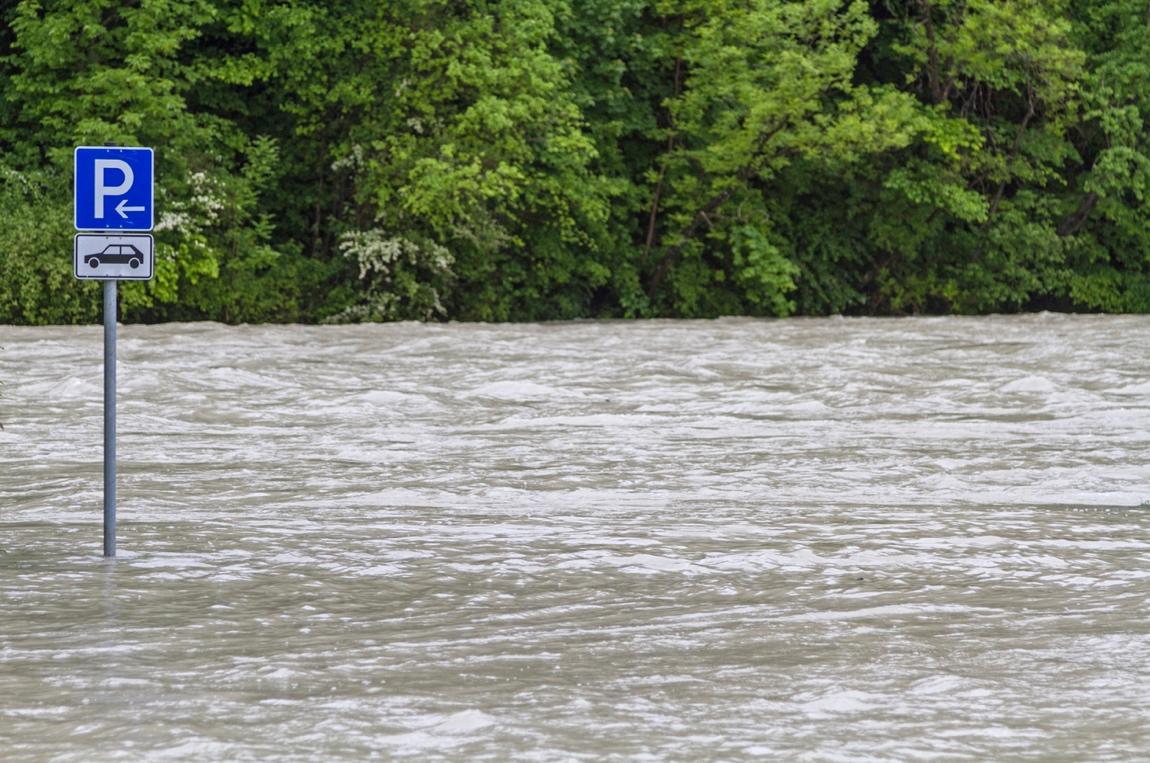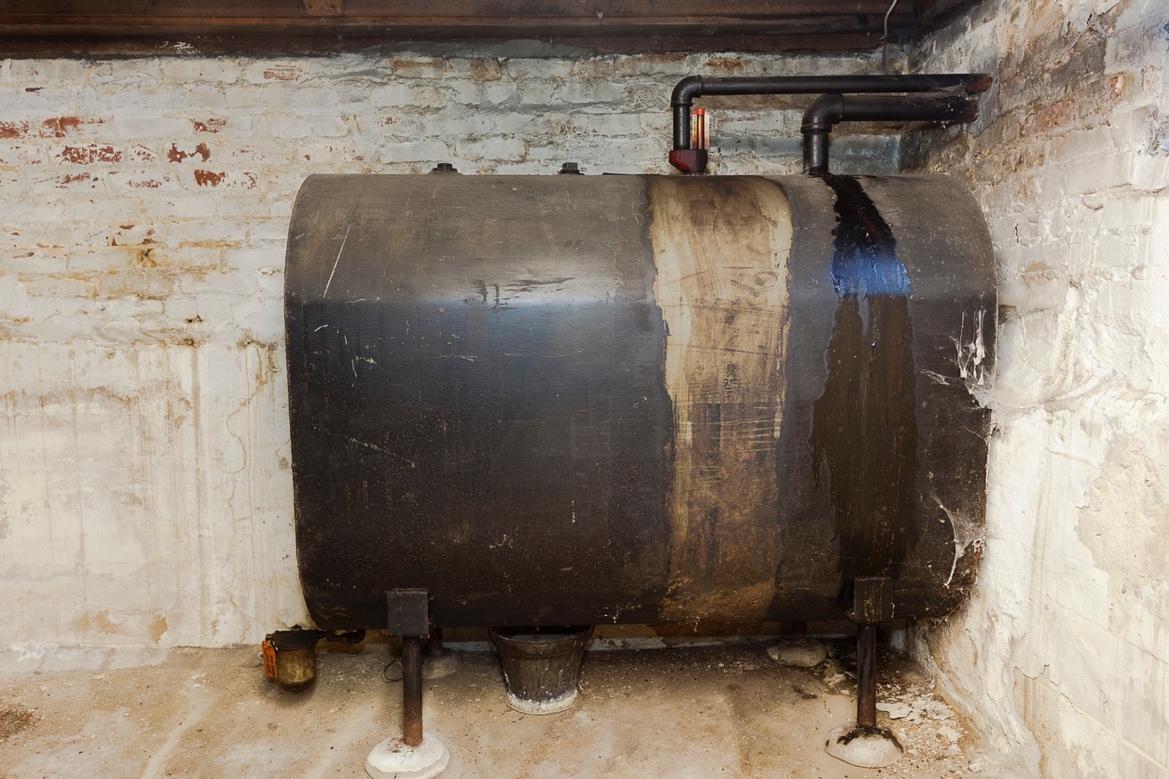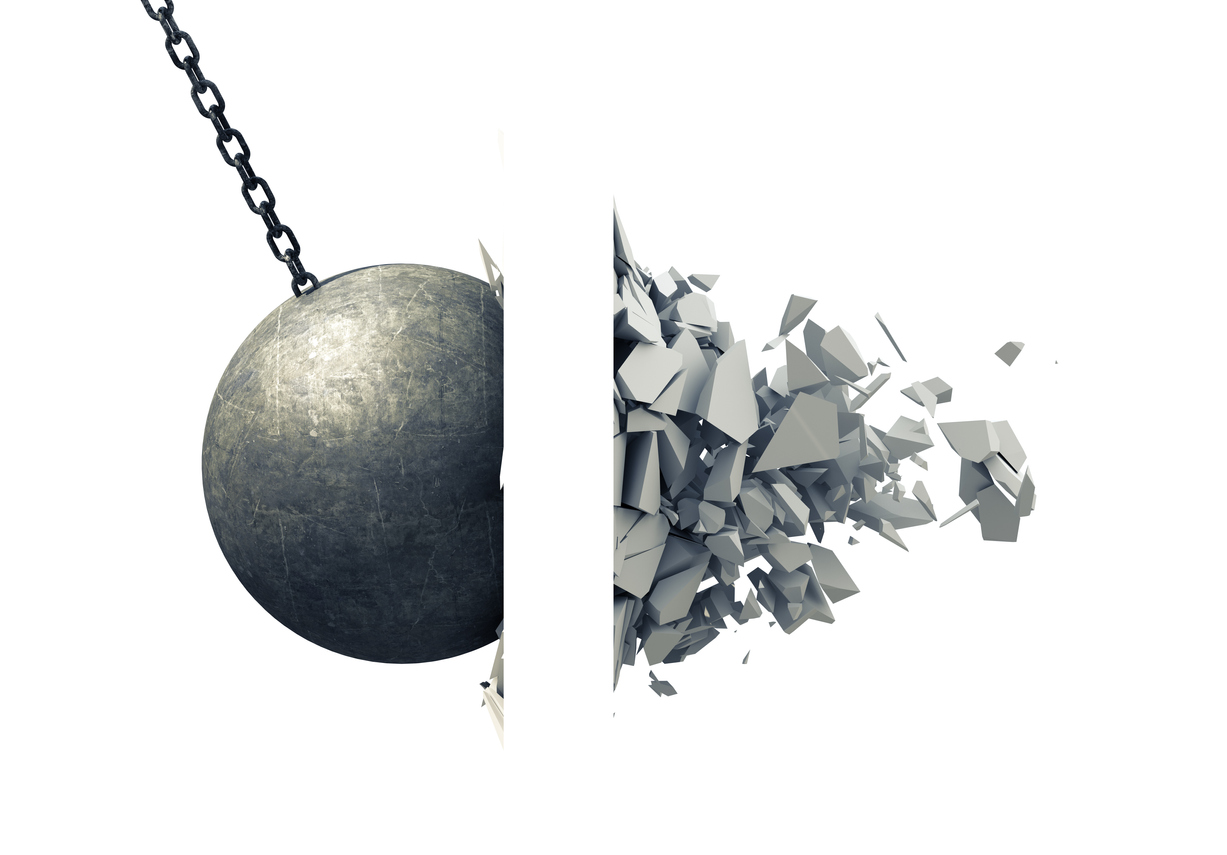Construction Material Delivery is a Vital Step in Your Project’s Safety
Safety is a priority on construction sites and it starts even before the project breaks ground. Getting the materials to your location is the first step in the process.
It would be great if getting construction materials from point A to B was just a straight run of the road. The reality is that there’s a lot to consider logistically if you want to achieve an efficient and safe delivery. In order to make this happen, you need communication, terrain knowledge, and a commitment to safety procedures.
The Logistics of Construction Delivery
When it comes to handling and delivering heavy materials like concrete, steel, or lumber it’s the safety of the workers that comes first.
Construction drivers are already one of the most at-risk demographics on the road according to some insurers, so they don’t need anything that will further complicate their job. Data from the Bureau of Labor Statistics highlights that even though driving is only one part of a construction job, our industry still faces a great deal of risk on the road.
A high degree of professional expertise is therefore required to get raw materials onto trucks and off to their destination with attention to security and safety. Improper stacking, interlocking, or racking creates the risk of materials sliding around or even coming free of the truck entirely during transit. Materials damaged or destroyed while in transit not only costs the client money but, more importantly, it can pose physical risks to drivers, pedestrians, and public property.
A further problem is hiring a construction firm unfamiliar with your project’s location. This means they’ll have to navigate new ground en route. By the time they reach you, time-consuming wrong turns and other delays could take a bite out of your bottom line.
Here’s a common-sense checklist every good firm will consider when loading and off-loading at the site:
- Equipping delivery operators with the proper knowledge of best safety practices
- Making sure personal protective equipment is worn during delivery (hard hats, boots, gloves, high-visibility clothing, etc.)
- Taking care that delivery vehicles can enter and exit the site with ease and paying close attention to acceleration and reversing
- Finding a safe place to park that won’t interfere with site operations or those within the surrounding community – this may involve some temporary traffic management
- Confirming the loading/unloading zone with onsite personnel
The perfect delivery checklist doesn’t stop there. Delivery means more than just dropping the materials and driving off. The materials must be securely stacked and stored onsite in a way that eliminates, or at least minimizes, the risk to everyone involved.
Our years of experience help us ask all the right questions. Are there any time-sensitive restrictions on when materials can be delivered and unloaded according to planning permission? How large of a delivery vehicle(s) will the site allow? Asking questions and double-checking information between the delivery team and onsite staff is crucial to an efficient supply chain. Lack of communication is one of the major problems costing the construction industry more than $177 billion every year.
Mikula Contracting knows that time is money and have been serving New Jersey for decades. You can be sure we know the territory and that’s just one reason to choose us for your next construction delivery.
Mikula’s commitment to safety from beginning to end
At Mikula, we care about our staff and our impact on the wider community. Loading and unloading construction materials can take a real toll on workers who may end up getting sprains, strains, and fractures under these weights. Compromised safety for our staff could lead to danger for our clients, and it’s a risk we won’t take.
That’s why every operator on our team is OSHA-certified, which means they’re trained to the highest standards to keep themselves and others safe. Combine those skills with over 70 years of experience in the construction industry and you’ve got the company your project needs.
Commercial trucking and construction material delivery are a specialty for us. Whether your load is large or small – stone, fill, or sand is no problem at all. We take the utmost care from loading it up, getting it there, and making sure it’s left on your site in a responsible manner.
Connect with Mikula to get an efficient and affordable crew to handle all your logistical needs from the start of your project to the end. If you’re in Essex, Hudson, Bergen, Passaic, Morris or Union Counties and need a quick price quote just click the contact link below.
Mikula Contracting, Inc. provides commercial and residential customers with a wide range of excavation, demolition, environmental, trucking, and soil materials services. For more information, call 973-772-1684 or email info@mikulainc.com
How Much Does that Boulder on My Property Weigh?
This guide will help you figure it out
When a business owner wants to improve his or her property, it is generally not too hard. There are quite a few landscaping or hardscaping ideas that can transform a property’s exterior, and improvements can attract more customers, convey a brand’s message, and offer several other benefits. And while planting trees and flowers and shaping topiary takes some work, sometimes Mother Nature makes things extremely difficult. If there is a boulder on your property and you would love to get rid of it, the first thing you need to do is get a good estimate of how much it weighs, and you can do this by following these steps:
Determining boulder type
Most rocks may look pretty much the same, but there many different types, and to calculate the weight of your boulder, it is important to know what you are dealing with. To do this, you can consult a local expert (perhaps there’s a college nearby with an earth science program you can ask for help) or you may be able to determine what type of rock it is on your own with this guide.
Start measuring
Unless you’re lucky, your boulder is probably not a perfect geometric shape, so getting precise measurements will be tricky. The first thing to do is to grab your measuring tape and measure its length. If it is very long, this could be a two-person job. Then measure its width and height. If the rock is tall, instead of climbing it, which could be dangerous, just make a good estimate.
Get out your calculator (or phone)
Once you have the length, width, and height in feet (you can round to the nearest foot for each), multiply them. If, for example, these measurements were 5X3X4, the total cubic feet of your boulder is 60 ft. You will then take that number and multiply it by the weight per cubic foot of the rock type. Let’s say you are dealing with basalt, which is pretty common in New Jersey. According to this chart, solid basalt weighs 188 lbs. per cubic feet. So, taking 60 and multiplying it by 188, you get 11,280. In order to calculate tons, you will then take that and divide by 2,000. Using the above example, you have a boulder that is about 5.6 tons.
Okay, you have the weight, now what?
While it is nice knowing how much that big rock weighs, that information is not going to help you move it. However, it will come in handy when determining what you will have to do to get rid of it. This should give you good insight into the kind of equipment and tools you will need, in addition to the costs involved. If you plan on hiring an excavation company to take care of it, giving them these details ahead of time may be able to expedite the process of removing the boulder.
If a huge rock is preventing you from enhancing your property’s landscaping, causing other issues, or it is just unsightly and you want it gone, get in touch with the excavation pros at Mikula Contracting. In addition to removing the boulder and perhaps some trees or other debris, we can also level out the land while preventing the loss of topsoil, reducing erosion. Our excavation services also address other areas, including:
- Drainage – When puddles develop on a lawn every time it rains, installing a seepage pit can help the problem.
- Foundation support – For a new structure or an addition to a current building, it is important to make sure the land can support the weight.
- Soil cleansing – When the soil around a foundation becomes contaminated due to something like a septic tank, it becomes a health risk to the community and needs to be removed.
- Pipe repair or installation – If water pipes aren’t working or need to be installed, precise excavation is paramount.
In addition to excavation, we also offer demolition services, and with everything we do, we make safety our number one priority. For over 70 years, when businesses in New Jersey have needed something dug up or torn down, they have relied on Mikula Contracting. If you are dealing with a troublesome boulder or any other issues that we can help you with, please get in touch. You can give us a call at 973-772-1684 or fill out our online contact form.
Properly Functioning Stormwater Drainage Systems Fight Against Flooding
New Jersey has always had to fight against floods, but increasingly harsh weather and an antiquated stormwater system mean the battle is a serious one. First-rate drainage is important for any business looking to keep its head above water.
It’s going to cost $15.6 billion to upgrade New Jersey’s aging stormwater systems, but it’s an expense that’s sorely needed. Our state was hit last year by more rain than we’ve seen in our history, and all that runoff must end up somewhere.
New legislation in the form of the Clean Stormwater and Flood Reduction Act was signed into law in March 2019 to improve the situation but caused some controversy. Whatever stance the public takes, it’s inarguable that highly efficient storm drainage will be required to handle the heavy loads of stormwater in our future; an element which creates a lot more problems than just soaking NJ residents.
The bigger problems with stormwater
The obvious issues caused are traffic hindrances, increased risk/occurrence of accidents, sinkholes, and possible severe structural damage to homes and businesses. These are terrible, but there are further dangers which aren’t so clear to the naked eye.
Stormwater is clean enough – until it hits the ground, that is. Stormwater is responsible for 60 percent of water pollution in New Jersey. Once it starts causing brooks, rivers and other water bodies to overflow, a wash of stormwater quickly becomes a carrier of pollutants into the wider community and negatively impacts humans, wildlife, and ecosystems.
When these rain tides cross over rural and urban areas (urban areas are usually harder hit because of a lack of natural drainage like soil), they pick up pesticides, bacteria, toxic chemicals, and other things like grease and oil.
Worse still, urban areas may find sewer systems engulfed beneath stormwater causing them to overflow and contaminate drinking water. Polluted water is already a problem for New Jersey with long-standing hazards including phosphorous, mercury, arsenic, and excessive bacteria.
All that pollution just gets picked up and spread around as stormwater goes on its way. Sadly, few New Jersey municipalities are expected to implement proper utilities despite this being the best course of action to meet modern standards for storm water management.
Where is it supposed to go?
Ideally, stormwater will flow into the storm drains you see dotted around parking lots and along sidewalks. Labeling requirements from the New Jersey Department of Environmental Protection’s municipal stormwater permitting program requires every storm drain be clearly marked in order to make people aware of non-point source pollution.
Once stormwater disappears down the drain, it should be rerouted and deposited into local waterways. New Jersey adopted stormwater management rules in the 1980s which utilized detention basins. These were designed to hold stormwater for gradual release through low-flow concrete channels and outlets into nearby bodies of water.
But, a worse-case scenario can take place. Combined sewer outflows common in older areas carry human waste and stormwater in the same pipes. Sewage should make its way to the nearest treatment plant, but that’s a struggle when stormwater is surging along the same passages.
When this combination is the case (which it is for 21 of New Jersey’s cities) the mixture of sewage, stormwater, and any pollutants along for the ride go right back into our rivers and out onto streets as drains overflow.
It’s an ugly situation that can escalate quickly and do lasting damage which can total in the millions of dollars. You can find more information on how New Jersey tackles stormwater on the DEP website and in their best practices manual. Our readers who own non-residential buildings such as commercial or industrial structures can find detailed information in this Stormwater Utilities Overview.
Let Mikula handle your commercial stormwater needs
We’re as passionate about the environment and community impact as we are about providing the highest service to our customers, so you can be assured that proper commercial stormwater solutions are a priority for us! Your commercial property is very likely at serious risk of falling foul of New Jersey’s outdated stormwater solutions and heavy weather that’s only set to get worse as the years go by.
We have a lot of experience in our 73-year history with solving commercial drainage problems. We offer our customers complete drainage design solutions that fit their property. Stormwater isn’t our only area of drainage expertise, either. We also provide ground and land drainage, surface drainage systems, rainwater drainage, seepage pit installation, and standing water drainage.
We’re a comprehensive drainage solution for commercial properties in Essex, Hudson, Bergen, Passaic, Morris, and Union Counties. You can be sure we’ll keep you informed and educated every step of the way, so you fully understand what’s happening and where your money is going.
Click here for a fast quote and let’s get to work protecting you and your property from the next wave of stormwater.
Mikula Contracting, Inc. provides commercial and residential customers with a wide range of excavation, demolition, environmental, trucking and soil materials services. For more information, call 973-772-1684 or email info@mikulainc.com
Improper Drainage Can Ruin Your Parking Lot - Here’s How Mikula Can Help
Floods are usually costly, but recent changes in New Jersey stormwater legislation could raise the price on future incidents. Here’s how to avoid turning your parking lot into a pond at any time of year.
New Jersey lots already have nature against them. They don’t need people adding to the problem. The image illustrating the 2018 state of emergency perfectly captures the battle New Jersey (and its parking lots) can face against floods.
Our communities are prone to chronic flooding; so much so that a controversial tax bill was recently passed to assist in the $15.6 billion it would cost to upgrade our state’s stormwater system.
Effective parking lot drainage is a must even if a flood isn’t underway. Lots can create water troubles all on their own if owners don’t take the proper steps.
How pooling becomes a problem
Isolated puddles here and there are also called “ponding”. They can seem harmless especially in larger parking lots. Owners may be content to wait out the rain and just let the puddles evaporate. But, even when evaporation does eventually occur, every moment that pooled water spends on the ground is naturally eating away at your lot by oxidizing and eroding the surface.
There can also be other things in those puddles besides H20. Standing water after rain can become pockets of toxic run-offs with gasoline, anti-freeze, and oil and brake fluid which may drip from cars into puddles and stay there. This only speeds up the erosion process of the lot’s surface.
Storm waters which roll into a lot behave in the same way by gathering up chemical byproducts and natural waste as they go; more unwanted stuff deposited on your property when those waters settle there.
Now, let’s add in New Jersey’s often-cold weather. Lot puddles go through the freeze/thaw cycle (sometimes many times over for the same puddles) which weakens the surface underneath. Thermal expansion can cause cracks to appear which only get bigger over time creating more risks and making a parking lot much less attractive.
Raveling and potholes are only two of the potential distress signs which might occur and seriously damage asphalt.
Water can wipe you out in a lawsuit
Pooled parking lots are also far more likely to cause an accident. Single drivers will have less control of their vehicles and could skid, but there’s much more risk that multiple vehicles will end up colliding. People walking across your lot are in greater danger too if water causes them to slip or fall, especially when that water has become ice.
These incidents can easily turn into lawsuits since the water has become a danger that your property will be liable for. Litigation of this kind could easily end up costing property owners thousands of dollars.
What you can do to weather any storm
Having proper drainage in your parking lot can save a world of trouble. In an ideal world, a drainage specialist would be present as the parking lot is first being constructed to ensure the right system is put in place early. There’s still no reason to worry if your lot has been there for a long time.
Every parking lot’s needs will be unique. Sometimes, some rearranging of the surface may be necessary in order to direct water toward areas where it could naturally and safely be absorbed, such as grassy spots.
Other times, a resurfacing may be required to replace the old asphalt with a more porous alternative. These “permeable paving” options are EPA-approved and help parking lots to mimic the natural filtration and drainage of soil. These options can also lower long-term maintenance costs.
Quality drainage must be installed beneath your parking lot’s subgrade, so it’s essential to hire a careful and qualified construction firm for the job.
At Mikula, we have over 70 years of experience under our belt and multiple ways to help your commercial property handle drainage. We provide complete drainage design regardless if your issue comes from stormwater, street water, or trench systems. We protect our customers by providing:
- Ground and Land Drainage
- Surface Drainage Systems
- Rain Water Drainage
- Seepage Pit Installation
- Standing Water Drainage
When you have the right drainage in place, we also recommend paying close attention to your lot and regularly cleaning away any toxic spills or debris which can threaten your property.
Why let your parking lot become a pool of risk and eyesores that will lower your property value? New Jersey was battered by more rain last year than the state has ever seen. There’s no better time than now to think about your parking lot’s drainage and protect yourself from Mother Nature.
Get in touch with Mikula today to be water-ready and minimize being washed-out by the “rain tax”.
Mikula Contracting, Inc. provides commercial and residential customers with a wide range of excavation, demolition, environmental, trucking, and soil materials services. For more information, call 973-772-1684 or email or email info@mikulainc.com
Know the Signs, Risks, and Solutions in Handling Underground Oil Tanks
It's not even used anymore. It's hulking in your building’s basement, or you know it's buried outside in the back lot. A look at when and why it's time to have a professional excavate and remove your heating oil tank.
The only time you never want to strike oil on your property is when it comes from an underground tank. These old and often-neglected containers are dotted throughout New Jersey, ready to cause environmental and financial headaches for businesses.
A new oil tank is a sturdy thing, but the older they get, the more they rust, degrade, and spring leaks. These are obvious red flags to proceed with repair or removal. As time goes on a business may upgrade its heating system and simply have no further use for the tank.
These are the signs it’s time to part with yours and what you can expect when removal begins. When the damage has gone too far, or progress has rendered it obsolete, the tank must be removed by experienced professionals who respect the process.
Oil tank removal step by step
- Technical appraisal and cost estimate – Oil tank contents are flammable and pose a toxic or even explosive hazard if handled irresponsibly. A technician will inspect the tank to see how much, if anything, it still contains and draw a cost estimate from there.
- Paperwork and permits – There's more to removal than just digging it up. Permits must be issued from local and state authorities who must be informed that the process is going ahead. The contractors themselves must also be fully licensed and covered to carry out the work. The best contractors will handle all that paperwork for their clients.
- Utility inspection and inerting – Your contractor will work in tandem with local utility companies to make sure electricity and other power lines are clearly delineated and won’t be damaged during the dig. The tank then needs to be rendered inert; a process which involves replacing the combustible oxygen in the tank with a non-explosive gas.
- Tank removal – Digging then begins to carefully remove the oil tank and transport it for safe disposal before the site is inspected again by an environmental official.
- Environmental appraisal (green light or clean up) – The ideal scenario is one where the tank isn’t leaking. If it has, it could be causing serious environmental damage including contaminating the groundwater – the source of drinking water for almost half of Americans. This is where the cost can rise from between $10,000 to over $130,000 dependent on the environmental impact.
You can discover more on the other oil tank dangers in our previous blog. If no cleanup is required, the property can be filled in and organically covered.
There are instances when a tank may be safely abandoned, rather than removed. It may be more structurally sound to leave it where it is. The rest of the process leading up to that final decision is the same.
There is some help with removal costs
On August 30, 1997, Governor Whitman signed the law establishing the Petroleum Underground Storage Tank Remediation, Upgrade and Closure Fund (UST Fund) within the New Jersey Economic Development Authority (NJEDA) and administered jointly with the New Jersey Department of Environmental Protection (NJDEP).
The UST Fund was created to provide financial assistance to eligible owners and operators of leaking petroleum underground storage tanks. The UST Fund statute was amended in 2003, 2006, 2007, and 2009. You can find out more about the fund on the Environmental Protection Agency’s website.
Financial aid is good news, and here’s more – amendments to New Jersey's oil tank legislation made non-leaking tanks eligible for the UST Fund. This provides grants for commercial property owners who want to be proactive in removing their oil tank before problems start. It’s a great incentive and certainly cheaper to act early than pay high prices for a leak.
Mikula is experienced with this classic problem
Funding or no funding, you’ve got an ally in oil tank removal. Mikula has over 70 years of experience in handling excavation throughout New Jersey. We perform oil tank removal from commercial properties in Essex, Hudson, Bergen, Passaic, Morris, and Union Counties. Our firm is fully licensed and insured throughout the state as well as being an Underground Storage Tank Certified Closure Contractor.
We’re proud of our professional ability to get the job done and of our personal care for how our work impacts New Jersey and the environment.
Contact us for a no-obligation quote. We’ll make your tank troubles a thing of the past!
Mikula Contracting, Inc. provides commercial and residential customers with a wide range of excavation, demolition, environmental, trucking, and soil materials services. For more information, call 973-772-1684 or email or email info@mikulainc.com
Don’t Leave Your Hotel Underwater by Going Solo
Pool removal is one of the trickiest excavation jobs there are. An amateur attempt will quickly create more problems than a hotel wants to handle. Hiring an experienced firm will make sure your property stays high and dry.
Swimming pools can be a real jewel in a hotel’s crown. They add a certain degree of luxury to a property, but even still, there are many good reasons why a hotel may part with a pool. Pools can cost a lot in maintenance and present a safety hazard for patrons. Or, maybe it’s just time for a cosmetic change in the landscape.
Whatever the reason, in-ground pool removal must be carried out by professionals. This delicate work needs experienced hands and a team who understands the many factors which need to be considered.
What you need to ask before going ahead with pool removal
Cost is probably the first factor on a hotel owner’s mind. It’s also the hardest one to predict without an onsite look at the pool. Naturally, the bigger the pool is the more it will cost. Next to consider is the removal method that works best for the property; this can be a full, partial, engineered, or collapsed finish.
Having all those factors in place will decide how expensive the job will be. You can avoid further expense by understanding the risks of amateur removals; mistakes that can add thousands of dollars to your final bill.
The risks of an unqualified pool removal
Any party attempting a pool removal without a license is breaking the law. New Jersey requires all contractors operating in the state to obtain licenses and register themselves before being allowed to work. Failure to do this can lead to steep fines and fees for the illegally operating firm. These criminals will pass their carelessness along to you through substandard work and you may also be subject to criminal fines if you DIY.
At Mikula, we’re more than licensed – we take care of all necessary pool removal permits and inspections, so our clients don’t need to worry about it. Here are the other headaches we can save you from:
- Improper drainage – There's more to emptying a pool than sucking out water. Holes need to be drilled or jackhammered to allow proper drainage. Chlorinated water from commercial pools can’t just be casually disposed of – New Jersey takes possible environmental impacts seriously.
- Drilling, demolishing, and filling – Pool walls can be made of materials like steel and concrete. Concrete can be a foot thick and reinforced with rebar making for a tough job. Tackling those without heavy-duty equipment and training won’t just be impossible, it will endanger your safety. Filling the pool afterwards with concrete or high-quality and well-compacted soil is also a professional job. DIY here could mean a cave-in later.
- Waste removal – New Jersey is careful about removing C&D waste. Our state has a list of guidelines, as well as, further rules to protect contractors, clients, and the community.
- Nasty shocks from electricity or gas lines – Professionals know where to look to find utility lines on your hotel’s property. DIY pool removers can easily impact or sever these conduits and cause serious health and safety risks.
- Future construction failures – Even if you managed to get a pool removed by yourself, there are laws in certain locales as to what you can do with that space in future. Many states don’t allow anything to be built again on top due to concerns about collapse. A professional can assess future build potential and tell you which options you have, if any.
DIY seems to offer one benefit – saving money. It’s an illusion. Amateur attempts only lead to major financial costs through fees, fines, extensive repairs, and even injury or death. There’s no sense in paying more than you must and no need to endanger your health or your life. Protect yourself by hiring pros.
We’re the pool professionals
We give our clients in the hospitality sector decades of experience plus the peace of mind our work ethic brings. We’re family-run and fully certified throughout the state of New Jersey. We’re qualified to the highest safety standards and care how our work affects our clients and the wider community environment.
If you’re intimidated by the expense of pool removal, don’t be. Mikula provides a free estimate of how much it will cost and a detailed timeline of the demolition process. You’ll know how much it will cost upfront, and you’ll be clear on what’s happening every step of the way.
Mikula has more than 70 years of work under our belt and commercial pool removal is just one of our many services. We offer services in Essex, Hudson, Bergen, Passaic, Morris and Union Counties. Let us know if you have a pool project that needs an expert eye.
Mikula Contracting, Inc. provides commercial and residential customers with a wide range of excavation, demolition, environmental, trucking, and soil materials services. For more information, call 973-772-1684 or email or email info@mikulainc.com
For the Greenest Excavations, Two Heads are Better Than One
Mikula offers eco-friendly services with environmental consultants that work alongside us to make it happen. Learn more about how these specialists help excavators operate safely and responsibly.
At Mikula, we’re always happy to see how seriously our state now takes environmental responsibility. New Jersey alone has an impressive 739 environmental consultancy firms offering their services to protect both the public and excavation companies from harm.
Why are those services so important? They matter because excavation isn’t just big machines digging and making a mess. It’s about care for the delicate balance between the excavation process and the world around us. Environmental consultants are essential personnel in maintaining a healthy worksite and a safe community.
The services of environmental consultants
The areas inspected by environmental consultants are diverse and cover every aspect of the materials involved in excavation, with a focus on how displacement may impact the ecosystem and the surrounding human community now and in the future. Here are some examples of their responsibilities:
- Acting in an advisory capacity for excavators and the public – Environmental legislation is subject to change, especially as the public warms up to being eco-friendly. Excavation firms may not always be diligent in staying up to date with the rules, and the public are often unaware of them. Environmental consultants are well-educated scientifically and technically, while also being well-versed in the latest rules and regulations governing sites. They can advise both construction professionals and customers on how best to handle the excavation at hand.
- Overseeing waste management – Sadly, New Jersey hasn’t always had as much eco-sense as we do today. Waste can take many forms, and there are too many Superfunded sites in our state showing how bad the situation is. Environmental consultants were involved from the beginning of that research, and will be there to ensure these defunct and dangerous sites are excavated and rehabilitated safely. Check out our earlier blog for a more positive take on what happens to construction waste.
- Assessing air quality – Excavation involves stirring up a lot of fine material called particulate matter. Particulates are a form of air pollution created at all stages of construction/excavation. They’re composed of very fine soil, metals, dust, or even acids and other chemicals. Consultants inspect a site to assess the danger of these being inhaled by people or animals in the area by studying potential upwind/downwind distribution factors.
- Environmental Auditing – An environmental audit is a comprehensive appraisal addressing the entire excavation procedure. Is the firm complying with statutory requirements and local/state regulations? Is each member of staff well trained and responsible? How well are all forms of pollution being managed? Consultants impartially answer these questions and more while keeping closely documented records.
- Consultants can offer legal protection – These records can be instrumental in defending or condemning a firm’s reputation if any legal issues arise from an excavation (imagine how important their services will be in scenarios like the one currently involving Duke Energy’s particulate problems).
- Conceptual modelling – This is a way that consultants can help firms investigate the future. A conceptual model takes all factors of an excavation into account and offers predictions on how well or poorly it might go. By considering cause and effect before a dig begins, firms can better spot potential problems and take the best action to avoid them.
A relationship that’s in everyone’s best interests
Environmental consultants are valuable intermediaries between all parties in an excavation. A consultant will often be the shared point of contact between the construction firm, the client and any local/state/national regulatory bodies. What’s more, consultants typically handle the bulk of legislative paperwork that many businesses can find overwhelming.
You should check licenses, reviews, and previous client satisfaction when hiring a consultant to be sure of getting the best. OSHA-certification is one excellent indicator of someone who is trained and educated to a high standard. There are cases when a consultant being presented just isn’t viable. What if a customer or small business requires an excavation but can’t afford the services of an environmental consultant? That’s when a firm like Mikula pays dividends.
Mikula’s commitment to environmental safety
The ideal excavation firm cares as much for the environment as they do about your project. Mikula is proud of our:
- New Jersey Department of Environmental Protection License
- New Jersey Home Improvement Contractors License
- Underground Storage Tank Certified Closure Qualifications
- OSHA-certification
Our previous blog on oil tanks in New Jersey highlighted just how important it is to take the utmost care when excavating. When we’re on the job we’re thinking like environmentalists as well as construction professionals. We’re a generational company built on family who share the core concern of every environmental consultant: how will what we do today impact future generations?
If you’re a commercial or a residential customer considering an excavation, we’d love to help you make it an eco-friendly one. Review our services and get in touch at the details below!
Mikula Contracting, Inc. provides commercial and residential customers with a wide range of excavation, demolition, environmental, trucking and soil materials services. For more information, call 973-772-1684 or email info@mikulainc.com
Careful, Careful: How Underground Oil Tanks are Removed Without Polluting the Environment
Most oil tanks weren’t designed to be buried
Rust never sleeps. It’s a Neil Young classic album, which many interpret as a metaphor for artistic vitality – without growth you’re vulnerable to the corrosive effects of age.
One thing’s for sure. Whether it’s a metaphor or not, rust truly doesn’t sleep. It’s the cause of corrosion for all steel underground oil tanks. It’s why they must be carefully removed so that they don’t end up contaminating the surrounding soil or groundwater. Here’s how it’s usually handled.
Expensive consequences
According to the Environmental Protection Agency (EPA) the average cleanup cost as a result of an oil spill from a damaged or corroded commercial oil tank is $130,000. It can cost tens of thousands of dollars for a smaller residential oil tank. For this reason, the EPA says that the best approach is to prevent contamination by underground oil tanks before they happen.
There’s an additional concern for homeowners. Your homeowner’s insurance policy may not cover the cost of damages and clean-up fees. Check to see if your policy contains what’s known as an absolute pollution exclusion cause. If it does, you’re not covered.
Is your oil tank leaking?
According to Smart Touch Energy, a heating oil provider, nearly 6 million American homes still rely on oil heating systems. The oil tank is usually located in a home’s basement, or it’s buried underground next to the dwelling.
It’s easy to know if a basement oil tank has developed a leak. You’ll smell it even if you don’t see it. Tanks buried outdoors can develop pinhole-sized leaks over time as the steel corrodes. The amount of oil released into the surrounding soil is small – often not even enough for a homeowner to have an idea of the problem. By the time the corrosion is significant enough to notice that oil usage is increasing, it’s likely that you’ve got a problem on your hands.
Often, homeowners remain unaware of a leak from an underground oil tank until they undertake a renovation or even decide to put in a swimming pool. The unearthed soil will have a strong oil smell.
Getting rid of that oil tank
Home expert Bob Vila tells readers that while natural gas heating systems are more expensive than oil systems, the natural gas heaters are more efficient, so they’ll recoup the cost of replacement more quickly. Replacing an oil system also allows you to get away from the expensive possibility of having to pay for the damages caused by an old leaking underground oil tank.
Proper excavation and disposal are not only crucial, but it may also be mandated depending on where you live. Here’s the biggest concern for any homeowner. Oil tanks on commercial properties are regulated by the EPA. An underground oil tank on your residential property is exempt from these federal regulations – mainly because most underground oil tanks were put in place before the EPA began to regulate underground storage tank systems (UST) in the 1980s. The problem – and it’s a big one – occurs if the tank has corroded and oil has contaminated the surrounding soil or even the water table. You may be held liable for the cost of cleanup and remediation.
In the state of New Jersey, there are specific steps you must follow – especially if there’s evidence of a leak. According to the State of New Jersey Department of Environmental Protection (DEP), you must report a heating oil discharge regardless of the quantity.
Work with a capable contractor
It will be your responsibility to engage a qualified contractor to remove the tank and any contaminated soil. You’ll also be responsible for any remediation necessary to the surrounding area. DEP recommends that you work with a contractor who knows and follows the regulations the state has in place for this work.
Another reason why you should work with a licensed contractor is that there will be required local construction permits. A contractor familiar with the state requirements will also take care of providing the excavation site soil samples that DEP requires to determine that any contaminated material has been removed. The tank itself must be removed following proper state guidelines, as well as recommended practices by the American Petroleum Institute.
If the DEP is satisfied that all steps have been taken to remove the oil tank and any resulting pollution, the department will provide you with a no further action letter. This is a crucial final step because the letter may be required if you sell your home in the future. Learn more about how we help homeowners successfully move through the required steps for residential tank removal.
Here’s Why Recent Oil Tank Regulation Changes are Healthier for NJ
The irresponsible handling of oil tanks can lead to many problems ranging from toxic fumes, polluted water, and the compromise of fragile ecosystems. There’s no excuse not to take the utmost possible care. New Jersey laws have tightened up to ensure we’re all safer.
Things can get chilly here in New Jersey. It’s no wonder that so many homes use underground storage tanks to contain heating oil. Despite being a common measure, the potential public and ecological dangers of these storage tanks went unregulated for years. This saw our state making the wrong kind of headlines.
Thankfully, things have changed for the better in recent years and New Jersey is now more responsible in handling this old problem.
What makes the oil so dangerous?
Heating oil is a petroleum-based product that’s refined from crude oil and contains substances such as benzene which are known carcinogens. This puts a lot of us here in the Northeast at potential risk, since those states make up most of the 5.7 million American homes using oil for water heating, furnaces, and boilers. In 2017, 3 billion gallons of heating oil were sold. The residential Northeast consumed 85 percent of that ... and we haven’t even factored in commercial use yet.
Underground tanks that are unmonitored, left to decay, or damaged by contractors, expose humans and the world around us to many risks. Vapor hazards can cause nausea, kidney and liver damage, breathing difficulties, and increased blood pressure. Animals and the environment can suffer by surface/sub-surface soil contamination, groundwater pollution, property damage, and the death of local wildlife.
Last year, New Jersey implemented rules designed to make public and professionals alike more aware and accountable with heating tank management.
How our oil tank laws got an upgrade
The New Jersey Department of Environmental Protection (NJDEP) proposed a new, more eco-friendly set of rules for handling heating oil tanks in 2017. Their Heating Oil Tank System (HOTS) remediation Rules (N.J.A.C. 7:26F) came into effect in 2018 and applied to unregulated residential oil heating tanks both under and above ground, as well as commercial tanks up to 2,000 gallons.
The rules called for owners to be strict and responsible with the maintenance of their oil tanks. The owner must immediately contact the NJDEP to report any oil leak. They then have 48 hours to employ a Licensed Site Remediation Professional (LSRP) who can gauge the extent of the damage. Leaks less than 100 gallons can be handled with the help of local authorities, particularly if they haven’t significantly compromised surrounding ground/surface water or soil.
Owners have 60 days maximum to ensure the problem is fixed. Failure to comply with NJEDP regulations could lead to fines and fees for homeowners, business owners, and contractors alike. How can we minimize the chances of a leak going that far?
Some tips on identifying a heating oil leak
Like diesel, heating oil is a distillate but unlike diesel, heating oil is dyed a pink or red color. This was a measure imposed by the Internal Revenue Service (and not the Environmental Protection Agency as you might assume). Heating oil’s color marks it as exempt from local, federal, and state taxes, as well as letting users know it’s illegal to use as a standard roadway fuel. Other tell-tale signs include:
- Buckling or rust in your tank’s legs (oil tanks weigh a lot and need strong support or else they’ll give out and tip the contents)
- Dripping from any part of the tank or rusty spots on the tank’s exterior
- Debris or blockages around your oil lines such as dirt, snow, or insect activity
- Dead or damaged vegetation if your tank is above ground
If your tank seems fine and you’re thinking of contracting work on your property, you need a licensed, eco-conscious contracting firm to make sure you have zero oil tank issues as the job is done.
Mikula’s care and credentials for environmentally-conscious work
The professionalism and eco-credentials of a contracting firm make the difference between being fine and being fined. Many contactors may be lax with their licenses and slow to cooperate with the authorities if an oil tank issue arises. This costs owners time and money.
Mikula Contracting takes care to avoid these issues. If oil tank problems are unavoidable, you can be sure we comply fully and promptly with environmental agencies to reach a swift solution. We can help you whether you’re a homeowner/buyer or an estate agent with oil tank scanning and residential tank removal services.
We provide peace of mind since we are fully insured and certified throughout the state of New Jersey. Our licenses and certifications include NJ Department of Environmental Protection License, NJ Home Improvement Contractors License 13VH00769700, Underground Storage Tank Certified Closure Contractor, and OSHA certification for every member of our team.
Get in touch with us for a free estimate and to learn more about how the best professionals handle an oil tank.
Mikula Contracting, Inc. provides commercial and residential customers with a wide range of excavation, demolition, environmental, snow removal, trucking, and soil materials services. For more information, call 973-772-1684 or email info@mikulainc.com
Construction and Demolition Materials Are Safe and Recyclable
Out of sight, out of mind; that’s what they say. Plenty of customers are happy to see demolished material disappear, but many are curious about where it all goes. Here’s the answer.
C&D (Construction and Demolition) debris certainly mounts up. America was producing 548 million tons of it in 2015, and that’s a figure set to hit 2.2 billion tons globally by 2025. Concrete, wood, and building fixtures and even earth, rock, and trees displaced at a site all go somewhere when the job is over. Many assume it will be dumped in a landfill somewhere and, to some degree, they’d be right.
Recycling is the way to go in a modern world that cares more about the environment than ever. Here in North America we’re second only to the Asia Pacific region in the C&D debris we generate. How well are we handling all that waste material?
C&D debris and landfills
You’ll be glad to hear that modern construction landfills are far from the negative image that might first spring to mind. Many kinds of industrial landfills exist today (of which C&D debris is one) and all are strictly regulated by the Environmental Protection Agency. Some types of C&D like asphalt can be extremely toxic, so any such materials reaching a landfill end up in environmental locations which are responsibly chosen to not expose people or place the local eco-system at risk.
Recycling is an effective approach to debris
Recycling is the next step up. New Jersey has over 100 recycling facilities which take in a wide variety of C&D debris and make sure they’re recycled responsibly. What exactly happens? Let’s take concrete as an example. It may become RCA or recycled concrete aggregate; a durable, versatile, and sustainable resource which goes a long way in helping to build things like roads and highways.
Even soil that’s been classed as C&D waste material by becoming contaminated at a site, can get a second lease of life by recycling. Petroleum may have spilled into the earth, but remediation is possible so it can be returned to a safe state for use. Even toxic asphalt can be recycled safely.
Recycling has some interesting benefits
Rejected clay from demolition sites played a part in this amazing house in Rotterdam, the Netherlands. This and other waste products helped give birth to a brand-new building which is healthier for the environment and more cost-efficient all around. Massachusetts has a great program called RecyclingWorks to incentivize responsible deconstruction practice. The program rewards firms who contribute with a double bonus of lower disposal costs and tax deductions.
There are no recycled houses in New Jersey (yet), but we’re still doing our part to be responsible.
How is New Jersey doing with debris?
Here at home, C&D debris means any waste building material and rubble resulting from construction, remodeling, repair, and demolition operations on houses, commercial buildings, pavements and other structures, but not including other solid waste types. Our state has a long list of waste material guidelines that covers all the bases, as well as further strict rules regarding the storage and processing of solid waste that protect people and the environment.
Even more eco-friendly is how NJ tries to minimize waste from the beginning. As we mentioned earlier, trees and other organic elements can become C&D debris, which is why NJ’s push for preserving trees during site development is such a good idea. There are plenty of benefits like reduced drainage, replanting, and energy costs, along with improved air quality and erosion control. There’s no need to handle demolished material if it’s not demolished in the first place.
Every good contractor knows the many elements which contribute to construction and demolition waste. The best firms don’t just dump and forget. They make environmental safety and staff awareness top priorities every time they get to work in their community.
Mikula Contracting cares about the job from start to finish
We hope you’re as happy about all these responsible ways to deal with debris as we are. Here at Mikula, the environment is one of our foremost concerns, which is why all of our operations throughout the state of New Jersey are carried out with our EPA license. We want to improve people’s lives and leave a site better than we found it, so we’re also proud members of the Land Improvement Contractors of America.
There’s no doubt that commercial construction and demolition can be a messy business. Get in touch today for help with your project or to learn more about what we do.
Mikula Contracting, Inc. provides commercial and residential customers with a wide range of excavation, demolition, environmental, snow removal, trucking and soil materials services. For more information, call 973-772-1684 or email info@mikulainc.com
